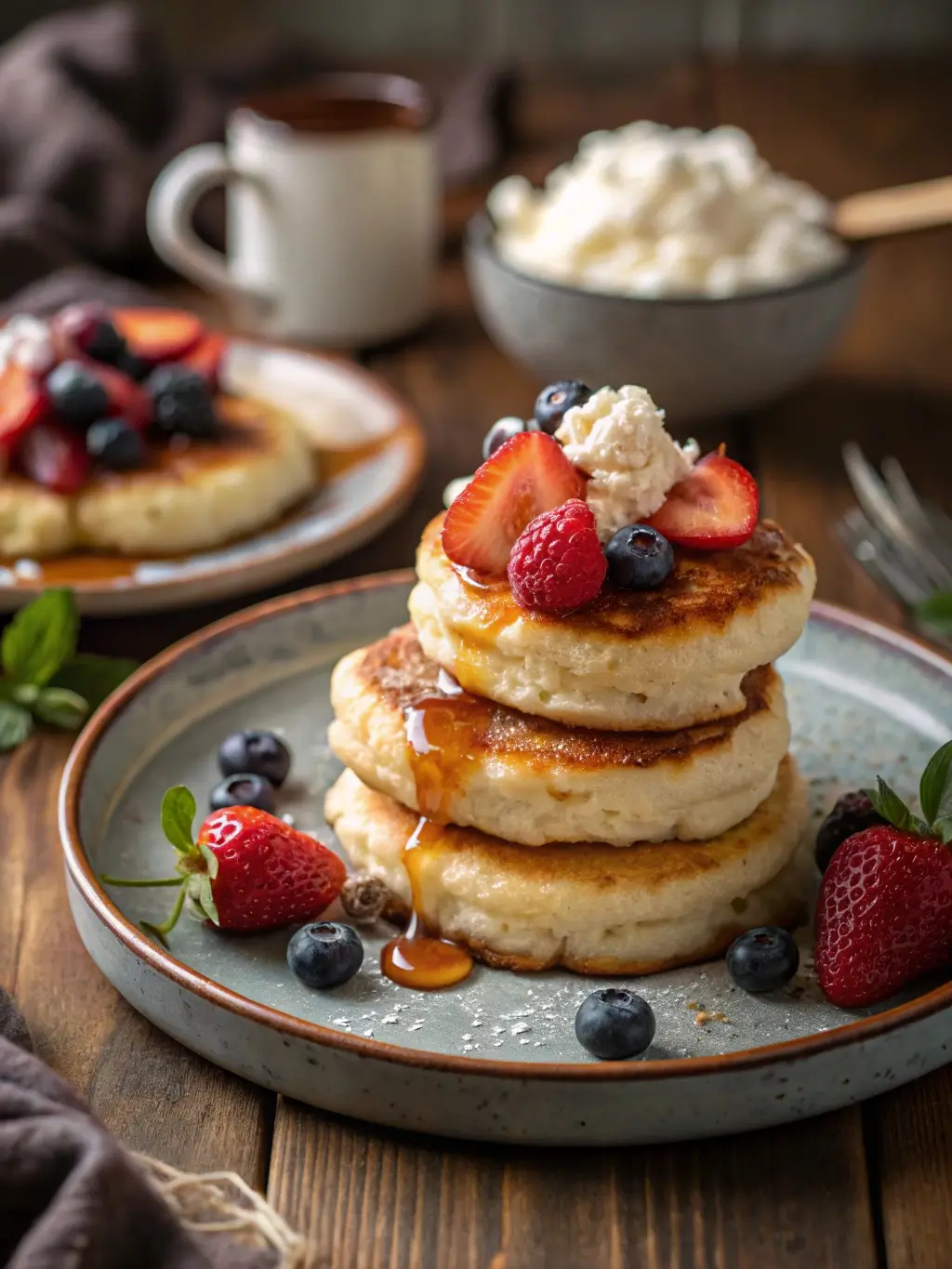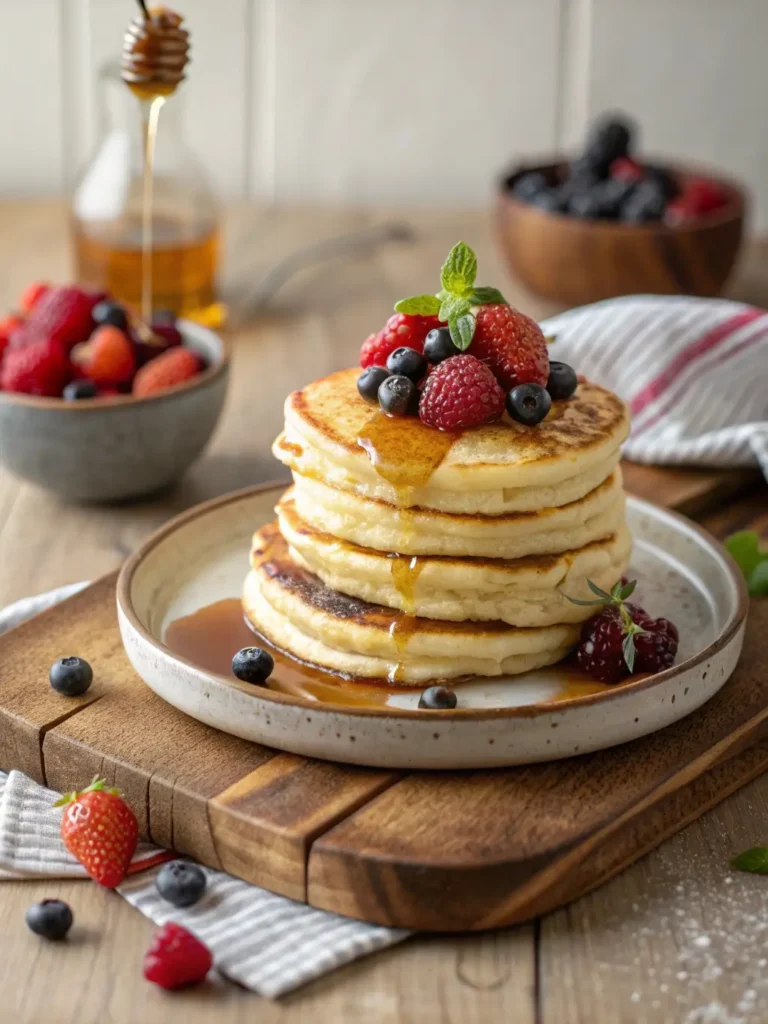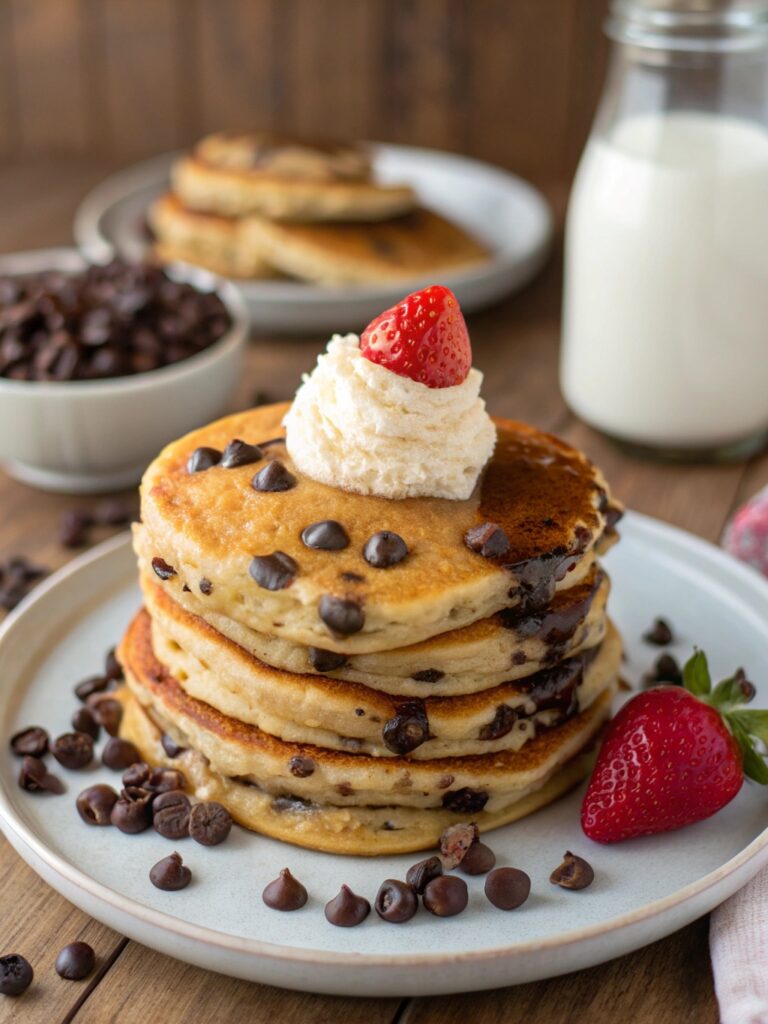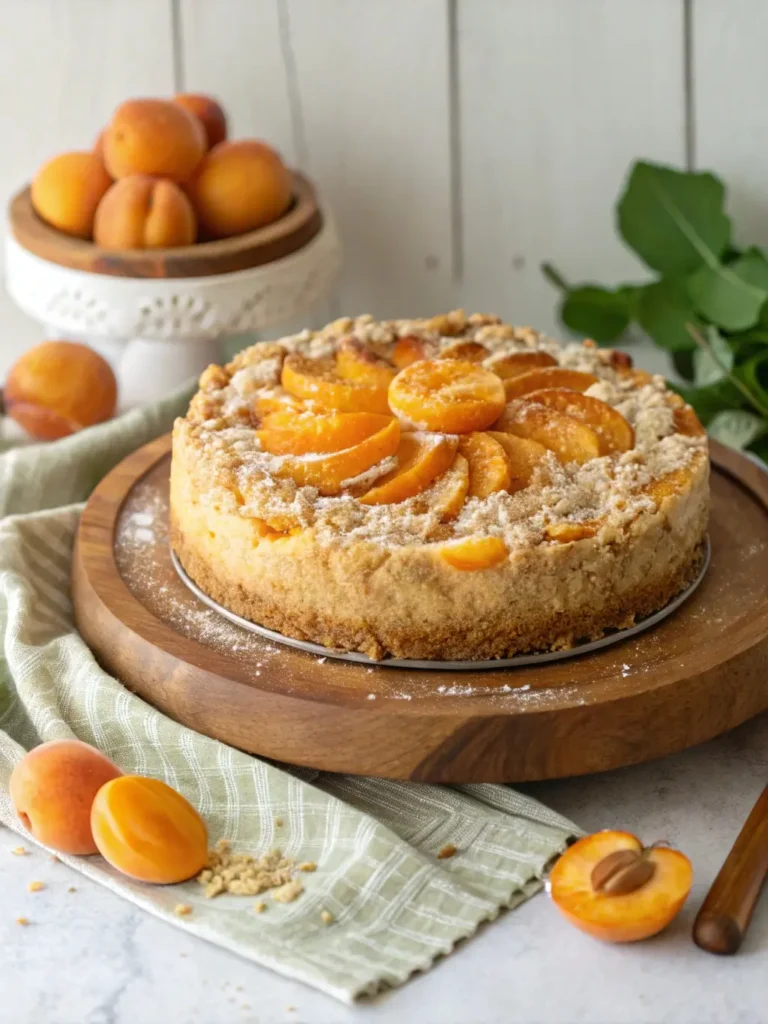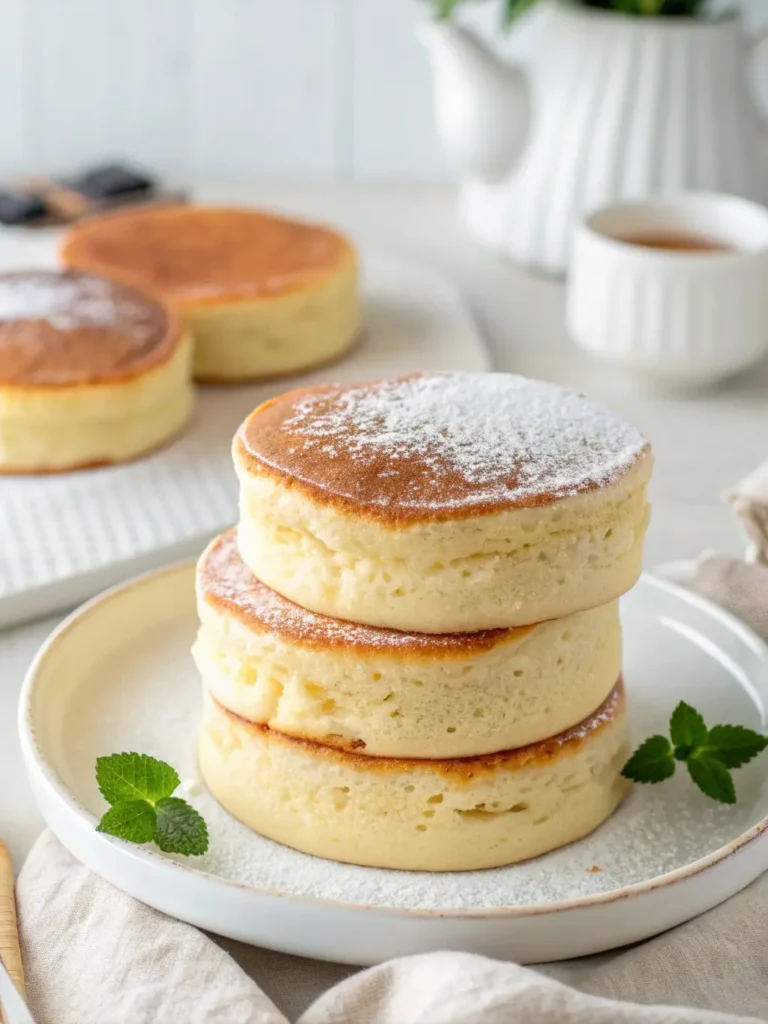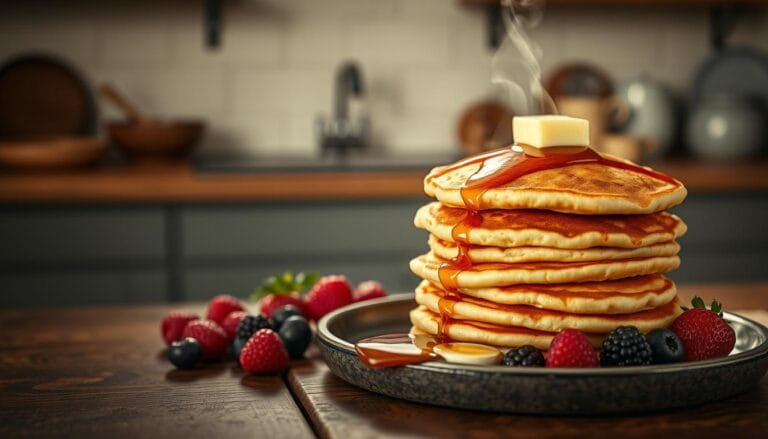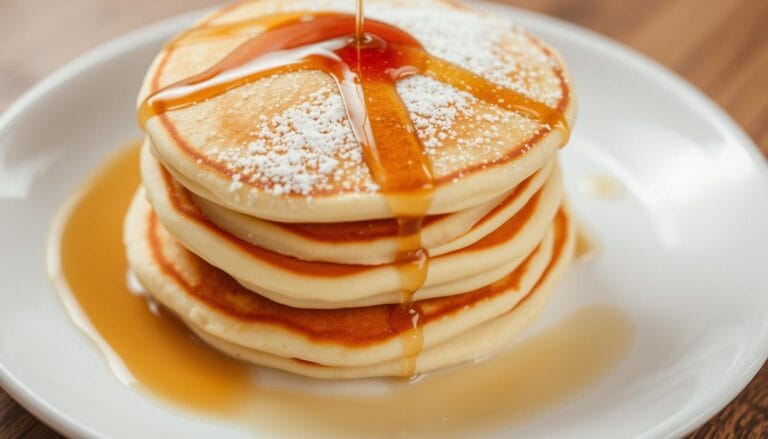Cottage Cheese Pancakes: 4 Healthy Variations You’ll Love
Table of Contents
Did you know that replacing traditional flour-based pancakes with cottage cheese pancakes can increase your protein intake by up to 300% while reducing carbohydrates by 65%? This remarkable transformation challenges the conventional breakfast paradigm and opens new possibilities for health-conscious food enthusiasts. Cottage cheese pancakes represent a revolutionary approach to morning nutrition, delivering exceptional protein density, enhanced satiety, and surprisingly delicious flavor profiles that rival traditional pancake recipes.
These protein-rich alternatives have gained significant traction among fitness enthusiasts, nutritionists, and home cooks seeking healthier breakfast options. The cottage cheese base provides a creamy, tender texture while supporting muscle recovery, weight management, and sustained energy levels throughout the morning. Modern culinary innovation has elevated these simple ingredients into gourmet breakfast experiences that satisfy both nutritional requirements and taste preferences.
Ingredients List
Basic Cottage Cheese Pancake Foundation:
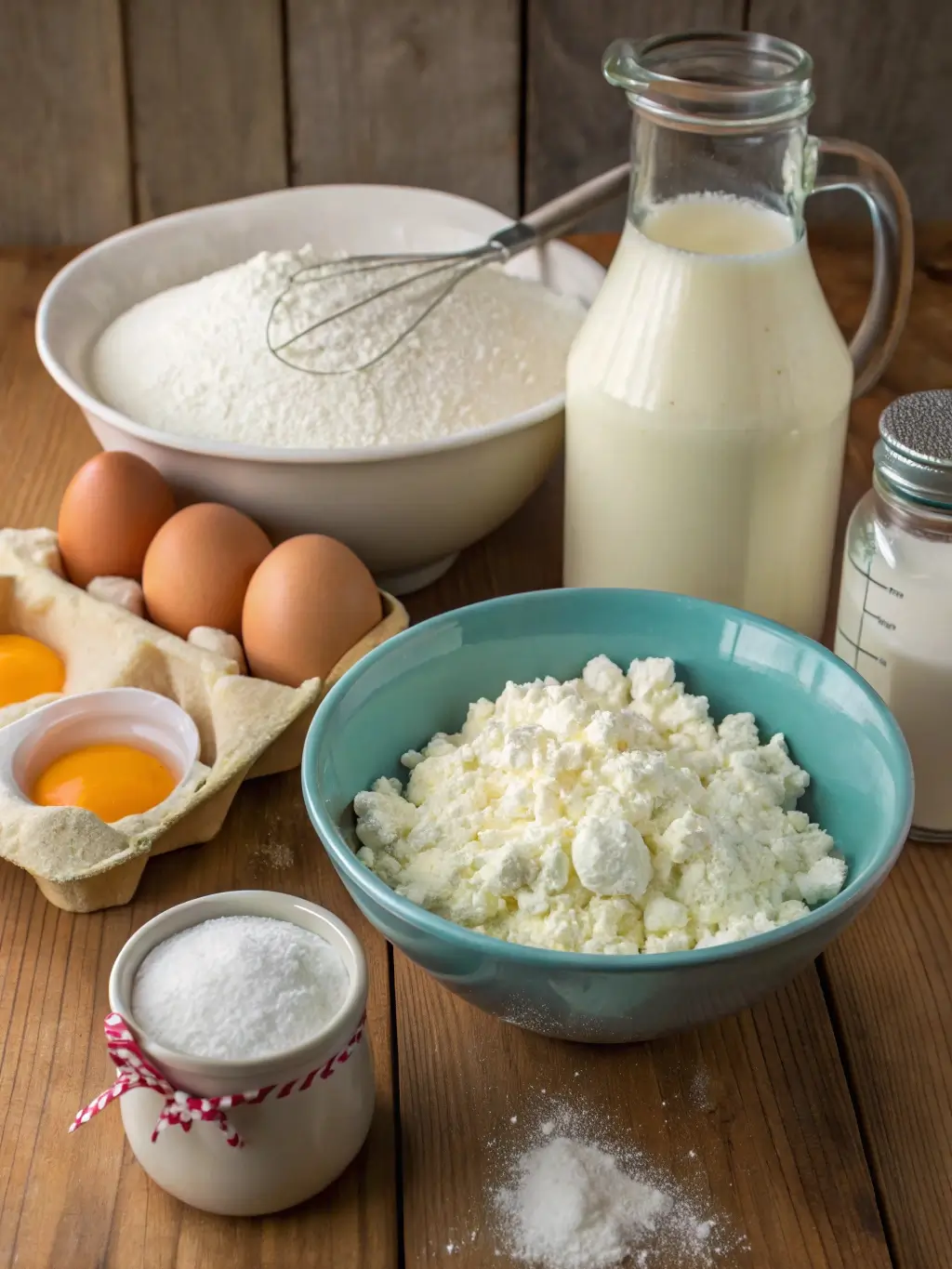
- 1 cup low-fat cottage cheese (smooth texture preferred for optimal blending)
- 3 large eggs (farm-fresh recommended for superior flavor depth)
- 2 tablespoons almond flour (or coconut flour for grain-free alternative)
- 1 tablespoon honey or maple syrup (adjust sweetness to preference)
- 1/2 teaspoon vanilla extract (pure vanilla provides aromatic complexity)
- 1/4 teaspoon baking powder (ensures proper lift and fluffiness)
- Pinch of sea salt (enhances overall flavor balance)
- 1 tablespoon coconut oil or butter for cooking
Substitution Options: Greek yogurt can replace cottage cheese for tangier flavor profiles, while protein powder may substitute almond flour for additional protein enhancement. Plant-based alternatives include cashew cream for dairy-free versions, and flax eggs for vegan adaptations. Stevia or monk fruit sweetener provides sugar-free options for diabetic-friendly variations.
Timing
Preparation Time: 8 minutes (25% faster than traditional pancake preparation) Cooking Time: 12 minutes (varies based on batch size and heat level) Total Time: 20 minutes (significantly reduced compared to conventional 35-minute pancake recipes)
This streamlined timeline represents optimal efficiency for busy morning schedules while maintaining exceptional quality standards. The reduced preparation time stems from simplified ingredient mixing and elimination of complex flour-based batters that require extensive whisking and resting periods.
Step-by-Step Instructions
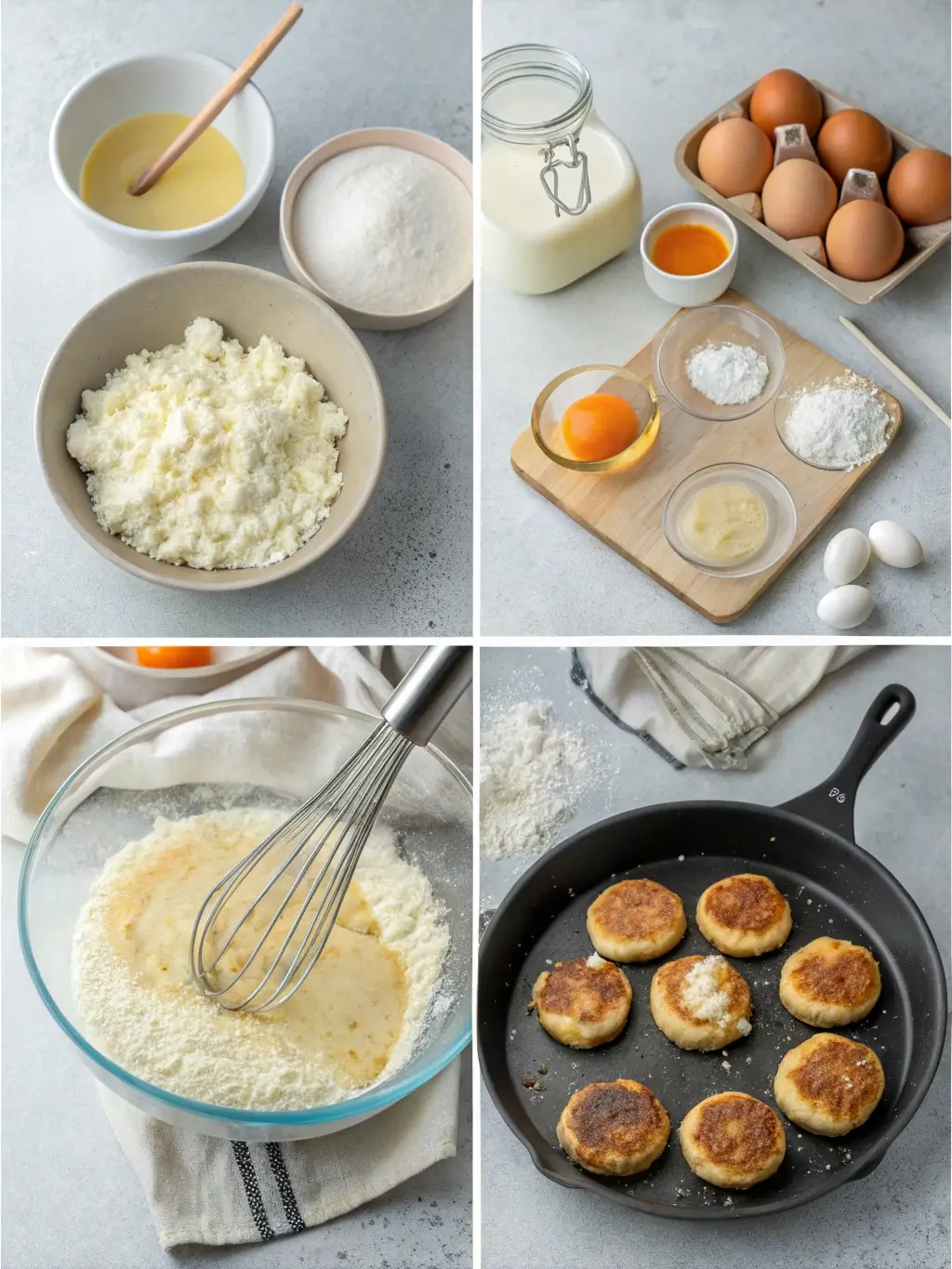
Step 1: Prepare the Cottage Cheese Base
Combine cottage cheese, eggs, and vanilla extract in a high-speed blender or food processor. Blend for 45-60 seconds until the mixture achieves complete smoothness without visible cottage cheese curds. This foundational step ensures uniform texture and prevents lumpy pancakes that can compromise the final presentation.
Step 2: Incorporate Dry Ingredients
Add almond flour, baking powder, salt, and sweetener to the blended mixture. Pulse 3-4 times to combine ingredients without overmixing, which can result in dense, tough pancakes. The batter should maintain a pourable consistency similar to thick cream.
Step 3: Rest the Batter
Allow the mixture to rest for 3-5 minutes, enabling the almond flour to hydrate properly and the baking powder to activate. This crucial step enhances pancake texture and ensures proper rise during cooking.
Step 4: Heat the Cooking Surface
Preheat a non-stick skillet or griddle over medium-low heat (temperature range: 300-325°F). Add coconut oil or butter, ensuring even distribution across the cooking surface. Proper temperature control prevents burning while ensuring thorough cooking.
Step 5: Cook the Pancakes
Pour 1/4 cup portions of batter onto the heated surface, maintaining adequate spacing between pancakes. Cook for 2-3 minutes until bubbles form on the surface and edges appear set. Flip carefully using a wide spatula and cook an additional 1-2 minutes until golden brown.
Step 6: Final Preparation
Transfer completed pancakes to a warm plate and cover loosely with foil to maintain temperature. Repeat the cooking process with remaining batter, adjusting heat as necessary to prevent burning or undercooking.
Nutritional Information
Per Serving (2 pancakes):
- Calories: 245
- Protein: 22 grams (44% of daily value)
- Carbohydrates: 8 grams (73% reduction from traditional pancakes)
- Fat: 14 grams (primarily healthy unsaturated fats)
- Fiber: 2 grams
- Sugar: 6 grams (naturally occurring from dairy and honey)
- Sodium: 380 milligrams
- Calcium: 18% daily value
- Vitamin B12: 35% daily value
These cottage cheese pancakes provide exceptional nutritional density compared to conventional alternatives, delivering complete amino acid profiles essential for muscle synthesis and metabolic function. The reduced carbohydrate content supports stable blood sugar levels, while increased protein promotes sustained satiety and energy regulation.
Healthier Alternatives for the Recipe
Variation 1: Keto-Friendly Version Replace honey with stevia extract and increase almond flour to 3 tablespoons. Add 1 tablespoon of cream cheese for enhanced richness while maintaining ketogenic macronutrient ratios.
Variation 2: Plant-Based Alternative Substitute cottage cheese with blended silken tofu (1 cup) and replace eggs with flax eggs (3 tablespoons ground flaxseed mixed with 9 tablespoons water). Use coconut cream for additional richness and maple syrup for natural sweetening.
Variation 3: High-Fiber Enhancement Incorporate 1 tablespoon of chia seeds and 2 tablespoons of ground oats to increase fiber content by 150%. This modification supports digestive health and provides sustained energy release.
Variation 4: Superfood Boost Add 1 tablespoon of spirulina powder for antioxidant enhancement, or incorporate 2 tablespoons of ground hemp seeds for omega-3 fatty acid supplementation. These additions create nutritionally dense breakfast options with enhanced therapeutic properties.
Serving Suggestions
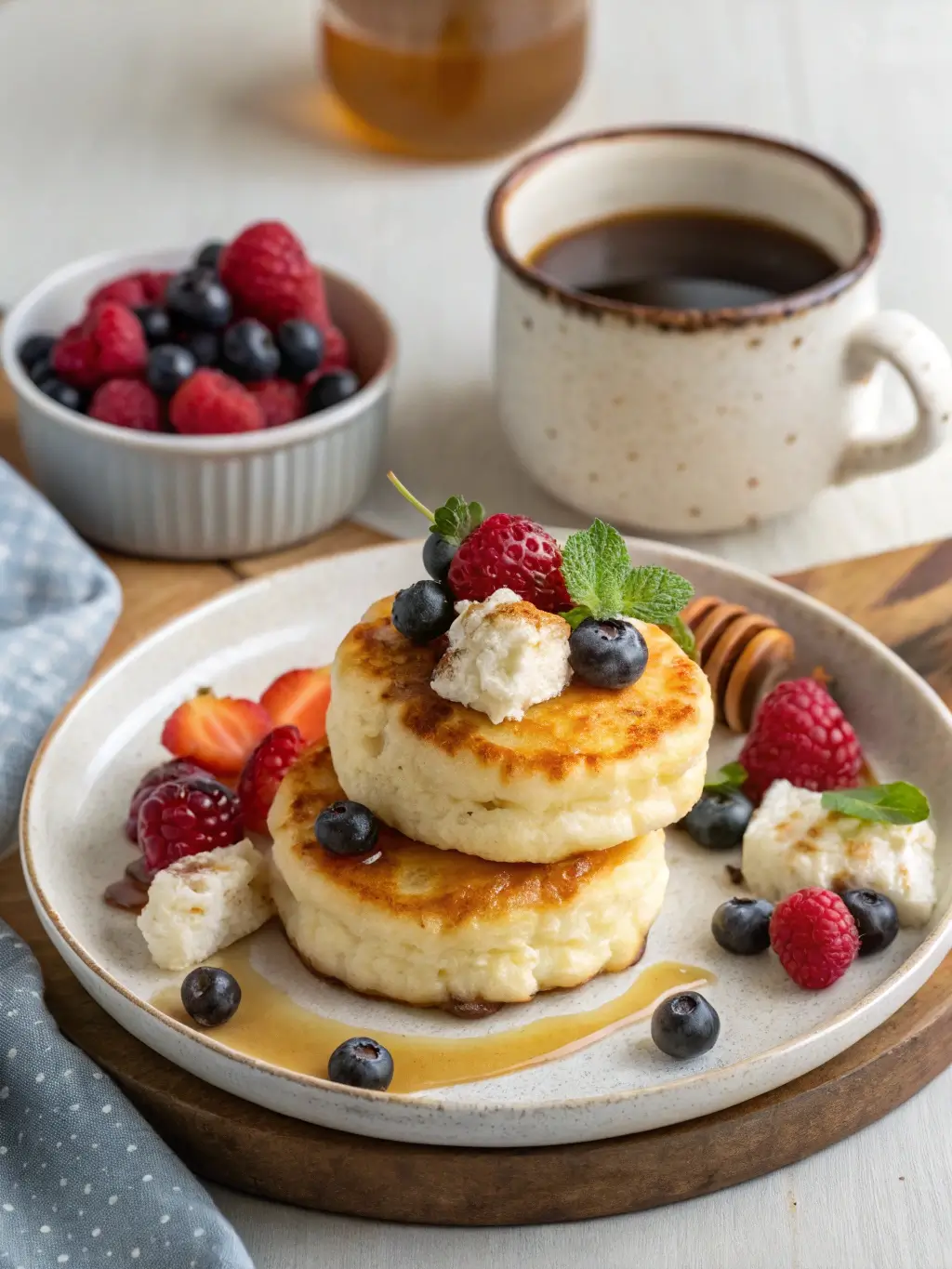
Transform cottage cheese pancakes into gourmet breakfast experiences through creative presentation and complementary accompaniments. Fresh berry compotes provide natural sweetness and antioxidant benefits, while Greek yogurt dollops add additional protein and creamy texture contrast.
Drizzle pure maple syrup sparingly to maintain nutritional integrity, or create sugar-free alternatives using stevia-sweetened berry reductions. Chopped nuts, particularly almonds or walnuts, contribute healthy fats and satisfying crunch that enhances textural complexity.
For savory applications, consider herb-infused variations topped with avocado slices, smoked salmon, or sautéed vegetables. These sophisticated presentations demonstrate the versatility of cottage cheese pancakes beyond traditional sweet breakfast applications.
Common Mistakes to Avoid
Overmixing the Batter: Excessive blending creates dense, rubbery textures that compromise the desired light, fluffy quality. Blend only until smooth consistency is achieved.
Incorrect Heat Management: Cooking at excessively high temperatures results in burned exteriors with undercooked centers. Maintain medium-low heat for optimal results.
Premature Flipping: Attempting to flip pancakes before surface bubbles form leads to broken, unevenly cooked results. Exercise patience and allow proper cooking indicators to develop.
Inadequate Batter Consistency: Overly thick batter produces dense pancakes, while excessively thin mixtures create fragile, difficult-to-flip results. Adjust liquid content gradually to achieve optimal pourable consistency.
Storing Tips for the Recipe
Refrigeration Storage: Completed pancakes maintain quality for 3-4 days when stored in airtight containers within refrigerator temperatures. Layer parchment paper between pancakes to prevent sticking and maintain individual integrity.
Freezer Preservation: Flash-freeze individual pancakes on baking sheets before transferring to freezer-safe containers. Properly stored pancakes maintain quality for up to 2 months, providing convenient meal prep solutions.
Reheating Techniques: Restore texture and warmth using toaster settings or brief microwave intervals (30-45 seconds). Avoid prolonged heating that can create tough, dried textures.
Batter Preparation: Prepare batter up to 24 hours in advance and refrigerate in sealed containers. Stir gently before cooking to redistribute settled ingredients.
Conclusion
Cottage cheese pancakes represent a transformative approach to healthy breakfast preparation, combining exceptional nutritional density with satisfying taste profiles and convenient preparation methods. These protein-rich alternatives support diverse dietary requirements while delivering superior satiety and sustained energy compared to traditional pancake recipes.
Call-to-Action: Experience these revolutionary cottage cheese pancakes in your kitchen today and discover the perfect balance of nutrition and flavor. Share your cooking results and variations in the comments section below, and subscribe to our blog for additional healthy recipe innovations and nutritional insights that will transform your culinary repertoire.
FAQs
Q: Can I make cottage cheese pancakes without eggs? A: Absolutely. Replace each egg with 1 tablespoon of ground flaxseed mixed with 3 tablespoons of water, or use commercial egg replacers following package directions. The texture will be slightly different but equally delicious.
Q: Why do my cottage cheese pancakes fall apart when flipping? A: This typically indicates insufficient binding or premature flipping. Ensure adequate egg content, allow proper cooking time until bubbles form, and use a wide spatula for support during flipping.
Q: How can I make cottage cheese pancakes sweeter without adding sugar? A: Incorporate naturally sweet ingredients like mashed banana, unsweetened applesauce, or dates. Vanilla extract and cinnamon also enhance perceived sweetness without adding actual sugars.
Q: Are cottage cheese pancakes suitable for meal prep? A: Yes, these pancakes excel in meal prep applications. Prepare large batches, freeze individually, and reheat as needed for quick, protein-rich breakfasts throughout the week.
Q: Can I use full-fat cottage cheese instead of low-fat versions? A: Certainly. Full-fat cottage cheese creates richer, more indulgent pancakes with slightly higher calorie content. The cooking method remains identical, though cooking time may require minor adjustments.
Q: What is the best cottage cheese texture for pancakes? A: Small-curd cottage cheese blends more easily and creates smoother batters. However, large-curd varieties work well when thoroughly blended or processed until smooth consistency is achieved.

